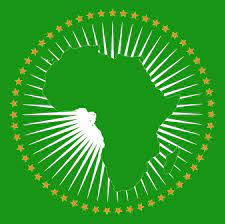
The active solidarity of King Mohammed VI of Morocco in the African Continent constitutes the basis of the path that structures Morocco’s humanitarian commitment, underlined minister of Foreign Affairs Nasser Bourita.
Mr. Bourita, who was representing the King in the African Union Extraordinary Humanitarian Summit and Pledging Conference, held in Malabo, Equatorial Guinea, underlined that the Kingdom’s commitment is, in fact, commensurate with the “challenges” and can meet the “humanitarian aspirations in Africa”.
“The King’s active solidarity is the basis of the path structuring Morocco’s humanitarian commitment. A solidarity commitment, but also a pragmatic one. It is indeed a commitment that is based on an approach integrating the several security, humanitarian and ecological challenges that weigh on Africa,” he pointed out.
“It is a commitment that is always centered on the human element, never on hidden agendas”, the Moroccan minister added.
Even during the pandemic, he underlined, the King launched the Initiative of African Heads of State to support the efforts of the Continent in the various phases of the management of the pandemic, with a substantial medical aid sent to some twenty brotherly African countries.
In this regard, the minister recalled the royal message sent to the participants in the 1st World Humanitarian Summit, held in Istanbul on May 23, 2016, in which the Sovereign had underlined that in order “to tackle the suffering and tragedies resulting from such situations, attention today should primarily be given to measures that are practical, using a rational approach and adopting proactive, forward-looking proposals that can help promote humanitarian action, without exploitation for political purposes.”
“We are facing an emergency…The humanitarian situation concentrates all the ills of Africa by making them a priority,” he warned.
“Africa does not have a monopoly on crises…but it concentrates a singular prevalence of them, as evidenced by over 36 million Africans who are internally displaced, refugees and asylum seekers in Africa.
“That is 1 out of 3 forcibly displaced persons in the world”.
“Out of the nearly 60 million internally displaced people in the world in 2021, more than 80% are in sub-Saharan Africa”, noted Mr. Bourita, warning that “Africa will have some 86 million climate-displaced people by 2050”.
Nearly 282 million people are undernourished in Africa. In the Sahel, “there are 18 million at risk of hunger in the coming months, including 7.7 million children aged less than 5 years”.
“We know the factors underlying humanitarian crises only too well. They are political and security-related. They are also environmental. And in the Sahel, it is almost all of these at once!”, stressed Mr. Bourita.
Thus, he pointed out, Morocco, beyond the emergency response, is mobilized on all the factors exacerbating humanitarian crises, such as political and security instability, economic precariousness and climate vulnerability.
“The litany of challenges corners us, but does not immobilize us”, said the Moroccan minister, stressing that “our horizon is that of action. Immediate action”.
“We strongly believe that this horizon must have, as a compass, respect for humanitarian principles and international humanitarian law and, as a line of sight, the vital interests of African citizens”, he underlined.
“Hence the need to put the human being at the heart of humanitarian action. Everywhere and at all times, Morocco’s commitment bears the mark of active solidarity.”
